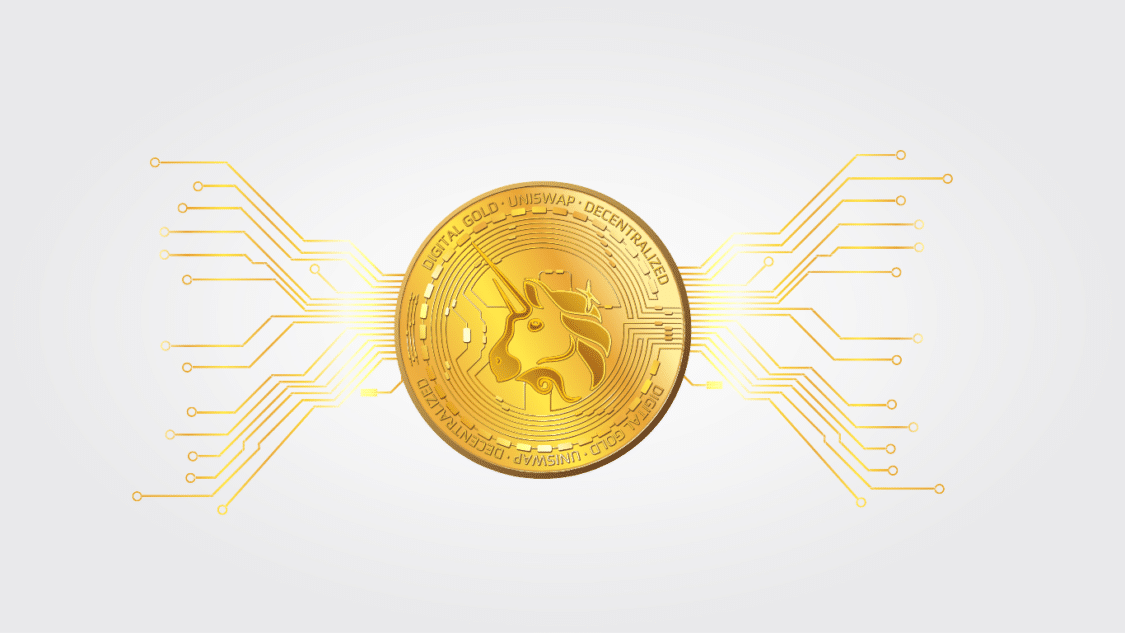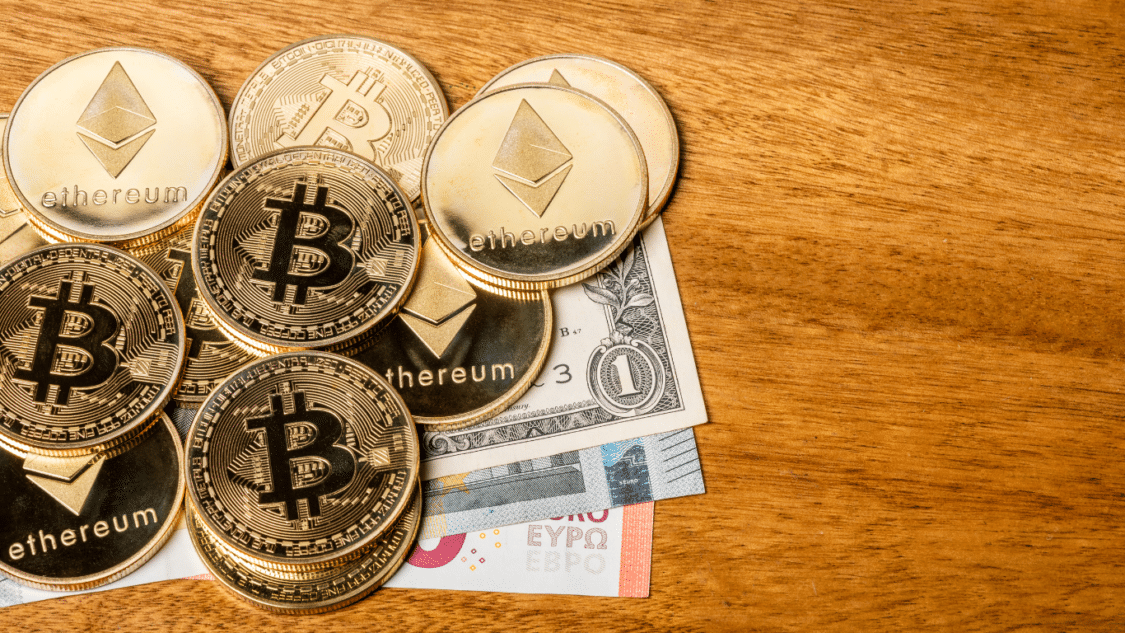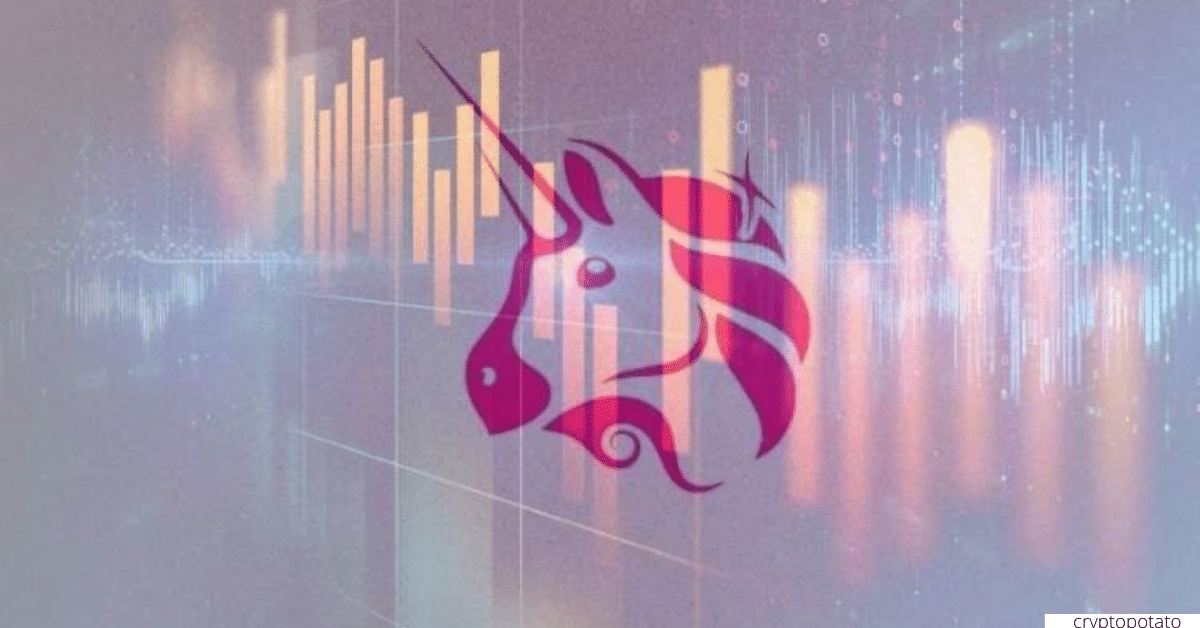Ever wondered what is Uniswap? It is a popular decentralized cryptocurrency exchange that operates on the Ethereum blockchain. Most crypto trading occurs on centralized exchanges run by a single authority, such as Coinbase and Binance. Uniswap differs from these types of exchanges and is a fully decentralized system.

We can call it the more advanced version because it is not run or governed by any authority. It is open-source and allows anyone to copy their code and create a decentralized exchange. A typical centralized exchange revolves around profit. The cost of listing a new coin is high. Whereas on the Uniswap system listing a new currency is free. Due to the decentralized nature of Uniswap, the private keys stay in the trader’s possession. This decreases the danger of fraud and asset loss. It is now the fourth largest decentralized financial Defi platform.
The Goal
Only when trades take place on Uniswap can the price of tokens change. In essence, Uniswap is balancing the value of tokens and allowing for their switching based on how much people want to purchase and sell them for.
The main goal of is to introduce a decentralized and efficient platform for token trading. Uniswap employs smart contracts and automated market-making algorithms to facilitate direct token swapping from digital wallets, eliminating the need for intermediaries. The fundamental idea is to establish pools of liquidity where individuals can add their tokens to aid in the exchange of assets.
Uniswap’s unique mechanism, the Constant Product Market Maker model, guarantees that token prices adjust dynamically based on the ratio of available tokens in the liquidity pools. The cost of tokens remains stable by adapting to the changes in demand and supply. This automatic pricing process removes the need for centralized pricing mechanisms and orders books, leading to a more transparent and decentralized trading encounter.
As the market state of supply and demand shifts, the token price responds accordingly to reach a state of balance. The cost of tokens remains stable by adapting to the changes in demand and supply. This automatic pricing process removes the necessity for centralized pricing mechanisms and orders books, leading to a more transparent and decentralized trading encounter.
Overall, the goal of is to standardize access to token trading, promote liquidity, and eliminate the barriers posed by traditional centralized exchanges. Uniswap, an advanced decentralized finance (DeFi) protocol, has emerged as a leading exchange platform by enabling peer-to-peer trading and facilitating user engagement in the ecosystem.
What coins are available on the system?

The available coins exceed 5,500. These tokens are available for trading on regular and Pro exchanges. Uniswap, a decentralized exchange protocol built on the Ethereum blockchain, supports a wide variety of tokens compatible with the Ethereum network’s ERC-20 standard. Most Ethereum-based tokens are possible to trade on Uniswap. However, the availability of specific coins on Uniswap depends on their listing and liquidity within the Uniswap ecosystem.
As the DeFi industry progresses, it regularly introduces new tokens, broadening the trading options available to users. Some of the most highly used digital currencies are covered in this category, including Ethereum (ETH) and stable coins like Tether (USDT). Additionally, decentralized finance (DeFi) tokens, such as Aave (AAVE) or Compound (COMP), and numerous other blockchain-based utility and governance tokens are included.
It’s important to know that although Uniswap supports various tokens, the availability and liquidity of specific coins are subject to change. Compared to newly listed or less well-known tokens, more established and commonly used tokens typically have better liquidity and trading volumes on Uniswap.
Uniswap also allows for the innovation of new token pairs by adding user liquidity. Users can list and trade tokens not readily available on the platform by providing liquidity.
What are the fees on Uniswap?

As discussed earlier, the fees are reasonable compared to a centralized network. There’s a 0.3% fee for swapping tokens. There are no protocol charges. However, there may be a charge of 0.05% in the future.
Uniswap charges fees for trades conducted on its platform. The main fees are swap and liquidity provider (LP) fees.
Swap Fees: A small fee is applied to the transaction when users complete a token swap on Uniswap. This fee is around 0.3% of the transaction value and is usually deducted automatically during the exchange. Liquidity providers receive a share of the swap fee that correlates directly to their input into the liquidity pool.
Liquidity Provider (LP) Fees: Liquidity providers who add tokens to Uniswap’s liquidity pools are qualified to earn a share of the swap fees earned from those pools. The accurate portion of the price acquired by LPs depends on their share of the liquidity pool. LPs can claim the fees once they withdraw their liquidity from the pool.
Furthermore, because Uniswap is built on the Ethereum blockchain, users are subject to Ethereum network gas costs, varying depending on network congestion. These gas fees cover the cost of transactions and engaging with smart contracts on the Ethereum network.
How to use it?
The need for identification is unnecessary on this platform, making it a faster process. Swapping a token is very similar to connecting a wallet on MetaMask. You select two assets for swapping and choose the amount of trading, and that’s it.
Moreover, its interface, characterized by its user-friendly nature and intuitive design, significantly enhances its accessibility. The platform navigation and token swap initiation process are notably streamlined, allowing users to carry out the latter with user-friendly and minimal steps. By linking their digital wallet to the interface of Uniswap, individuals can engage in a wide selection of trading pairs comprised of various tokens.
Going further, it allows users to make instructed decisions while swapping tokens. The platform includes details such as the current market price, trading volume, and the amount of liquidity available in the respective pools. The integration with popular wallets such as MetaMask simplifies the process even further. Users can connect their MetaMask wallet. They may safely access their token holdings and easily complete trades with a few clicks.
Moreover, its open-source nature has led to the development of numerous third-party tools and interfaces, enhancing the trading experience for users. These tools offer advanced charting, portfolio tracking, and analytics, providing users with more comprehensive insights to support their decision-making process.
Overall, its user-friendly approach, integration with popular wallets, and availability of third-party tools make it a leading platform for token swapping. It’s simplicity and decentralized nature have contributed to its widespread adoption within the decentralized finance (DeFi) ecosystem.
What is the difference between Uniswap and Ethereum?
Ethereum is based on blockchain technology that allows for the creation and implementation of smart contracts in a distributed way. It is the foundation for many decentralized applications (DApps) and protocols. Ethereum developed the notion of programmable blockchain, allowing developers to construct and deploy decentralized apps such as Uniswap and decentralized finance (DeFi) protocols.
On the other hand, it is a decentralized exchange protocol built on the Ethereum blockchain. It operates as an automated market maker (AMM), enabling the swapping of tokens without order books or intermediaries. It leverages smart contracts to execute token swaps directly from users’ wallets, utilizing liquidity pools contributed by users.
Ethereum essentially serves as the foundation and framework that enables developers to create decentralized applications, whereas Uniswap functions as a distinct application or protocol operating within the Ethereum ecosystem. Uniswap leverages Ethereum’s smart contract features and token norms (including ERC-20) to facilitate the decentralized trading of tokens.
What are the risks and considerations associated with using Uniswap?
Similar to many financial platforms, Uniswap involves certain risks and considerations. A common risk is smart contract vulnerabilities. As Uniswap operates on smart contracts, these codes can be susceptible to malicious activities, potentially risking user funds or manipulating trades. Therefore, users on the platform should act with caution.
Another consideration is the concept of impermanent loss, which affects liquidity providers on Uniswap. This situation arises when the worth of tokens in a liquidity pool diverges considerably from their separate value, leading to possible setbacks while retrieving tokens. Liquid providers must acknowledge the potential hazards of market volatility and evaluate the prospective repercussions on their investments with caution.
Slippage and price volatility are additional risks to consider. Uniswap’s automated market-making model can lead to slippage, causing the executed price of a trade to differ from the expected price. During periods of high volatility or when trading large amounts, slippage can significantly affect the overall execution price and profitability of a trade.
Conclusion on What is Uniswap?
In the world of cryptocurrencies and blockchain, things change quickly. Built on Ethereum, Uniswap is a cutting-edge trading protocol. Without using a centralized entity, it enables anyone with an Ethereum wallet to exchange tokens. Developing decentralized exchange and finance is the most profitable for investors and businesses.
In conclusion, it is a transformative force in the crypto and blockchain technology industry. As a cutting-edge decentralized trading protocol, it has revolutionized how token exchanges occur. By eliminating intermediaries and providing users with direct control over their assets, Uniswap empowers individuals worldwide to participate in secure and accessible token trading. Its open-source nature and interface with popular wallets have encouraged widespread adoption and created a thriving ecosystem of decentralized applications and initiatives.
Moreover, Uniswap’s mark extends beyond its primary functionalities. The development of Uniswap and the broader decentralized finance sector present significant investment opportunities. Uniswap is leading the charge in the ever-evolving realm of cryptocurrencies and blockchain technology.
For more news updates, visit our homepage now and see our latest news article. Want to learn more about trading? Visit our education page now and learn for FREE!

